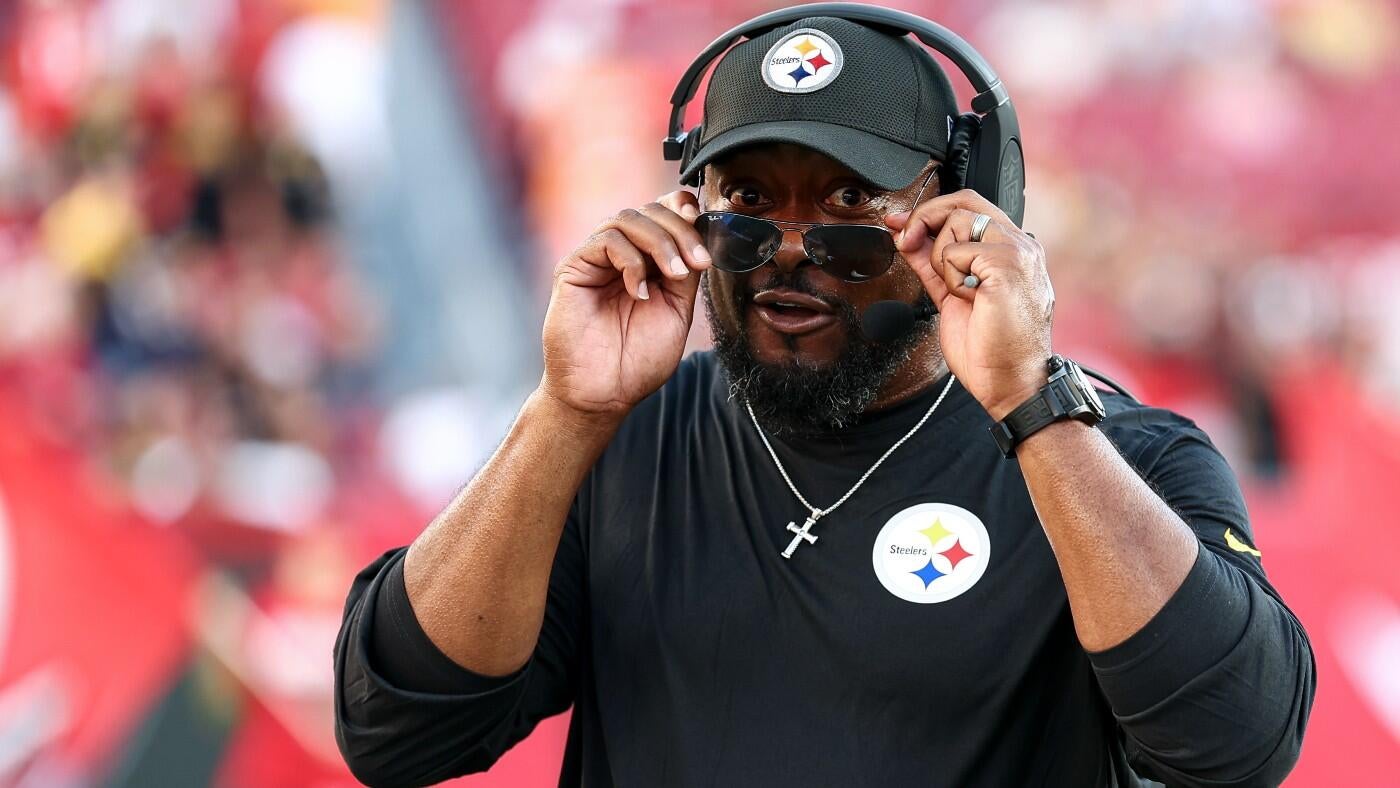The NFL officially charted new waters this week, voting on Tuesday to approve player participation in the 2028 Olympics, which will feature flag football as an international competition for the first time. There are clear restrictions on the venture, including Olympic teams rostering a maximum of one player per NFL team, but it’s still a major step, clearing the way for the league’s talent to reach a worldwide stage.
By the time the Summer Games kick off in Los Angeles in 2028, it’s anyone’s guess as to which NFL players will be best suited to represent Team USA — or another country — on the flag football field. We have some early ideas of our own, proposing a 12-man roster headlined by the Washington Commanders‘ Jayden Daniels, but it’s important to remember that flag football is an entirely different format.
Still, the now-sanctioned union of NFL and flag football talent will be something to monitor, especially as NFL executives like Troy Vincent tout the flag format as “the future” of the sport.
What other big-picture endeavors and/or rule changes could be on the horizon for the NFL? We decided to put on our thinking caps (and maybe get a little crazy) to propose three bold moves for the future:
1. Form an official NFL FLAG minor league
The NFL currently operates NFL FLAG, a nationwide flag football program for ages 4-17. But now that actual NFL players will be free to try out for Olympic teams starting in 2028, it’s only logical that the league fleshes out its ecosystem for development. Nearly two decades after the NFL shuttered NFL Europe, the fledgling international minor league, a pro NFL FLAG setup could essentially take its place.
Think of it as a spring league with a lesser physical toll, and teams outfitted by a select number of allocated NFL players. The allocated players might even cross-train during the actual NFL season, remaining under contract as practice squad/FLAG players; this way, in theory, they’re eligible to be promoted for NFL action while gaining invaluable experience in the flag format, which the NFL has declared as “the future.” These players might also be strong candidates to make the leap to Olympics competition every four years.
2. Institute a penalty shot
The NFL has been tweaking the kickoff for years, trying to address safety concerns while retaining the big-play potential of the play. Regardless of its future, what if the league simply looked elsewhere to offset the kickoff’s debatable relevance? Such as with a “penalty shot” kick enforced after egregious personal fouls?
Currently, the NFL mandates that any player who commits two personal fouls of unsportsmanlike conduct will be ejected. This proposal adds a wrinkle: If a team commits at least three (3) unsportsmanlike penalties and/or has a player ejected, the opposing team is granted a 55-yard field goal attempt for an additional two (2) points. This could further incentivize fair play while adding a potential scoreboard bonus for the affected team. Would it slow down the game? Not if the standard kickoff is also booted from the rulebook.
Ranking 5 coaches on hot seat heading into 2025 season: Is this the end of the Mike Tomlin era with Steelers?
Jeff Kerr

3. Start a second-half running clock
The NFL already mandates that the game clock run even if players go out of bounds before the last two minutes of the second quarter and the last five minutes of the fourth quarter. But that hasn’t stopped NFL games from dragging on for an average of more than three hours. Yes, that’s valuable time for the league to keep eyes glued to coverage. But is the extended runtime necessary in bad blowouts?
A newly installed second-half running clock would dictate that the clock stops for nothing — except timeouts, injuries, etc. — if a team holds a lead of at least 35 points in the third quarter or beyond. This is precisely the rule used by some states in youth and high school football. Keep in mind that the running clock would cease if a team narrowed the deficit to anything fewer than 35 points. Worried that this would ruin the potential for second-half heroics? Not even literally the biggest comeback in NFL history — a 33-point swing by the Minnesota Vikings in 2022 — would’ve been affected by this proposal.




GIPHY App Key not set. Please check settings